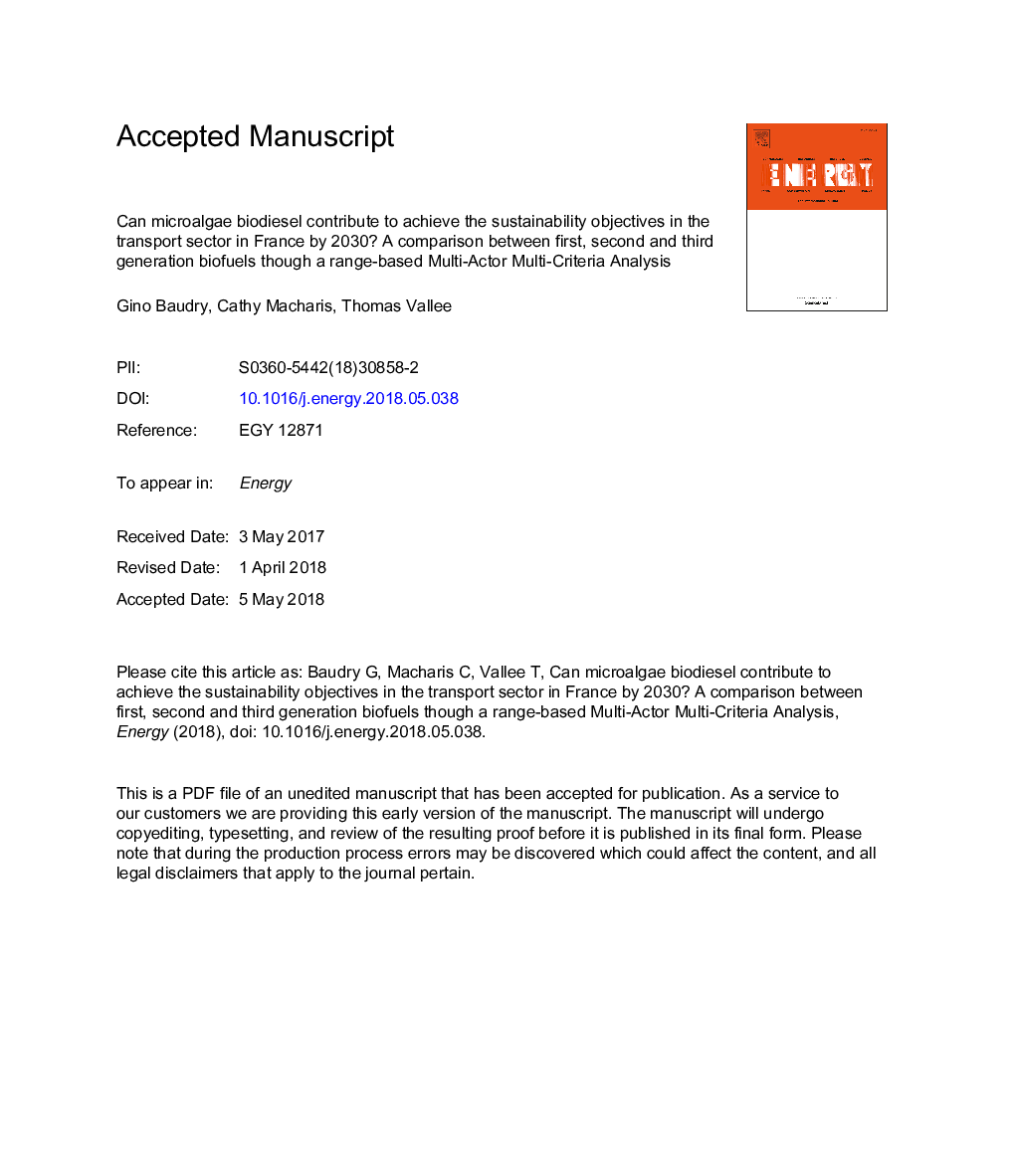| Article ID | Journal | Published Year | Pages | File Type |
|---|---|---|---|---|
| 8071523 | Energy | 2018 | 38 Pages |
Abstract
The present study aims to address the following question: compared with first and second-generation biofuels, can microalgae biodiesel contribute to addressing the sustainability objectives in the transport sector in France? To this end, we deployed the range based Multi-Actor Multi-Criteria Analysis (range-based MAMCA) methodology that explicitly considers the different and occasionally conflicting values of the stakeholders (feedstock producers, biofuel producers, refining industry, fuel distributors, end-users, car manufacturers, government, and NGOs). By means of a Monte Carlo simulation, the method also provides an exploratory scenario approach that enables considering uncertainty concerning the context evolution and the biofuel impacts by 2030. In our case study, we aimed at fostering co-construction with stakeholders into the decision-making process by involving them starting from the very beginning of the procedure. Assuming a “weak sustainability” (i.e. the substitutability between human and environmental capital) our results suggest that microalgae biodiesel can contribute to the achievement of the sustainability objectives in the transport sector. Preliminary policy measures are finally suggested to speeding up the deployment of microalgae biodiesel in France. At the overall level, our study provides new insights about the capacity of first, second and third generation biofuels in fulfilling the sustainability criteria of the different stakeholders.
Keywords
Refining industryMicroalgae biodieselMAMCAGHGETBEHVOGOVMCABtLiLUCEthyl tert-butyl etherLCALife Cycle AssessmentStakeholder analysisMulti-criteria analysisIndirect land use changeGovernmentRenewable Energy DirectiveHydrotreated vegetable oilAnalytic hierarchy processBiomass to liquidNGOnon-governmental organizationREDCellulosic biofuelsAHPfatty acid methyl estersFAME یا fatty acid methyl esters SustainabilityEnd-usersEuropean CommissionGreenhouse gas
Related Topics
Physical Sciences and Engineering
Energy
Energy (General)
Authors
Gino Baudry, Cathy Macharis, Thomas Vallée,
